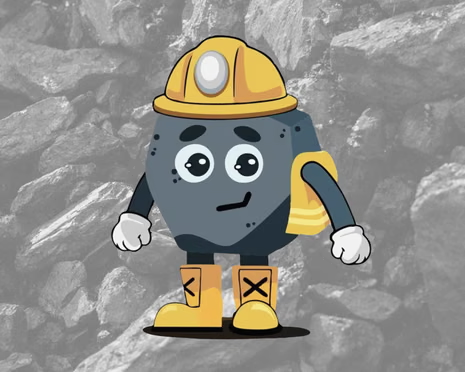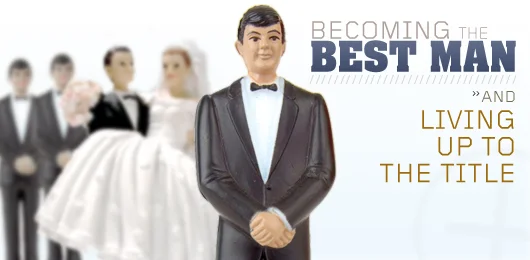When I was a child, I suffered from paralyzing claustrophobia. I was unable to put my head under blankets, enter closets, crawl under furniture or hide in the dryer (which my sister often did).
Tight quarters of any kind terrified me.
I’m not sure if I was born with this fear or suffered a traumatic episode at some point as a child, but one of my first memories is a dream in which I am thrown inside a sack by a handful of shadowy men and tossed into the trunk of a car, unable to warn my unsuspecting father as they prepare to attack and presumably kill him.
I managed to make my way through life relatively unscathed by this fear until my first camping trip as a Cub Scout. Though I wanted to go camping with my friends, I was also keenly aware that we would be sleeping in tents, and in terms of my claustrophobia, I knew that even stepping inside a tent would be impossible.
It was also the first and only camping trip attended by my evil stepfather. I would go on to spend more than 300 nights sleeping outdoors as a Cub Scout and Boy Scout, but this was my one and only chance to have a parent alongside me.
We were sharing a tent with another family, and when it came time to go to bed on the first night, I panicked. I poked my head into the tent, large enough for an adult to stand upright, and knew there was no way I could ever sleep inside.
I couldn’t bring myself to even enter. The prospect of spending an entire night in that tent, zipped up and trapped, frightened me like nothing before. There have been moments in my life when I have been more frightened than that moment, but they are few and far between.
At first I tired to play off my fear as a desire to sleep under the stars.
When that request was refused, I argued that if I slept outside, there would be more room for everyone else inside the tent.
When that request was refused, I panicked. I cried. I became inconsolable. Fear and tears and snot mixed in what must have been an ugly combination.
My stepfather gave me two choices:
Sleep in the tent or go home. He shouted this at me in front of my friends and their parents, mostly fathers but a smattering of mothers, and when I opted for the trip home, he retracted his offer and told me to get inside the tent.
I refused.
There was yelling. Crying. Screaming. At one point the struggle became became physical. I looked to the other parents for help, but their eyes were averted from the scene. Lots of staring at the ground and sudden concern for the loose shoelaces and the cleanliness of the dinner plates.
Eventually my stepfather forced me into the tent and zipped it closed. His only concession was to allow me to sleep by the door. I huddled against the zippered door and cried. Even the confining nature of the sleeping bag frightened me. I was afraid that if I fell asleep, someone might find a way to zip it closed like the sack in that childhood nightmare and trap me inside.
I lay there against the edge of the tent, my sleeping bag fully unzipped, waiting until the last flashlight was switched off and darkness consumed the tent’s interior. Then I pulled the zipper on the tent door open a single inch and pushed one finger through the opening.
One finger on the outside while I was trapped inside. Somehow it made the terror slightly more bearable.
I spent the night in this position, sleeping very little, if at all.
I cried and screamed the second night as well, but it was better.
On the third and final night, I was still sleeping with a finger outside the tent door, and I had cried a bit upon entering the tent, but the panic was gone. It had been replaced by resignation, anger, and shame for how I had behaved on the first two nights.
As I said, I spent many nights sleeping in tents as a Boy Scout, and it took a long time before I was ever comfortable inside a tent or even a sleeping bag. Large family-sized tents eventually gave way to smaller, more confining, two-man models, and these posed an especially difficult challenge for me.
But nothing was ever as bad as that first night with my stepfather, and never again did I require the prodding of an adult to get inside a tent. While I am sure that the spectacle of that first night remained burned in the minds of my friends and their parents for a long time, I entered every tent after that trip with falsified confidence, a counterfeit smile, and a slowly diminishing sense of terror.
I remain claustrophobic today, though only slightly. The only time I ever feel that panicked sense of confinement is when I am in a large crowd, unable to move freely. Closets and sleeping bags no longer frighten me, and if I could fit inside the dryer, I think I’d be fine in there as well.
In many ways, I began to overcome my claustrophobia on that first night of camping as a Cub Scout when my stepfather forced me to face my fear.
Was it right for him to force me inside that tent?
Was it right for him to embarrass me in front of my Cub Scout troop?
Could he have handled the situation more deftly? He was, after all, a psychiatric social worker who occasionally worked with children.
Was this really the best strategy to help a kid overcome an unreasonable fear?
I’m not sure. While I am certain that I would handle the situation differently as a parent, with considerably less anger, physicality and volume, I sometimes think that this was the best thing, and perhaps the only good thing, that my evil stepfather ever did for me.
Had he allowed me to go home that night, I might have quit Scouting altogether and missed out on some of the best moments of my childhood.
Had he allowed me to sleep under the stars, I suspect that my fear for the tent would have only grown larger and more difficult to manage in subsequent camping trips.
It makes me sad to think about that eight year-old version of myself, crammed against the door of the tent, alone, a single finger extended into the cold, autumn air. But had it not been for that long night of terror, I might still be suffering from this paralyzing fear today.
Is good parenting sometimes cruel parenting?
As a parent, I hope to always have the courage to do the right thing for my children when the easy thing would be to coddle and protect them.
But perhaps there is a middle ground.
A space between coddling and the actions of my stepfather that might serve to help my children while not leaving them alone, ashamed, and afraid.
Either way, I think I am grateful to my stepfather for forcing me to face my fear that night.
It may be the only thing I am grateful for, but it’s something.






